Nancy Meyers on the Hollywood Gender Gap & Lindsay Lohan
Plus, The Intern writer & director's advice to live by.
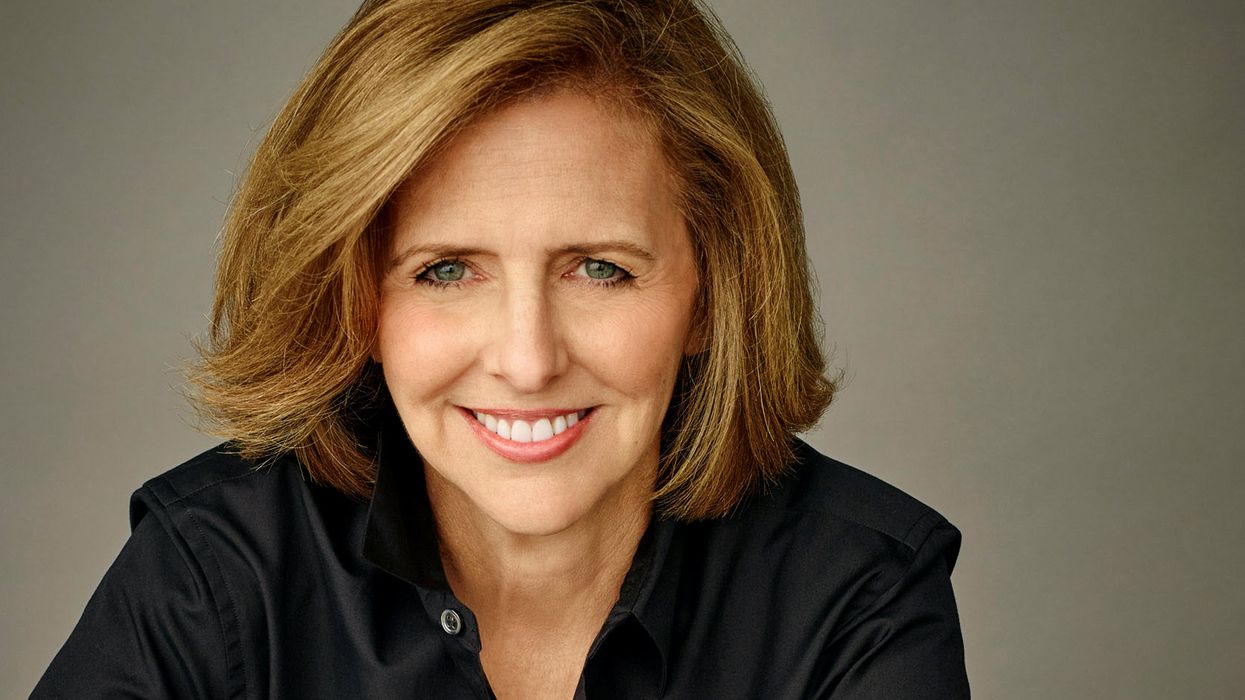
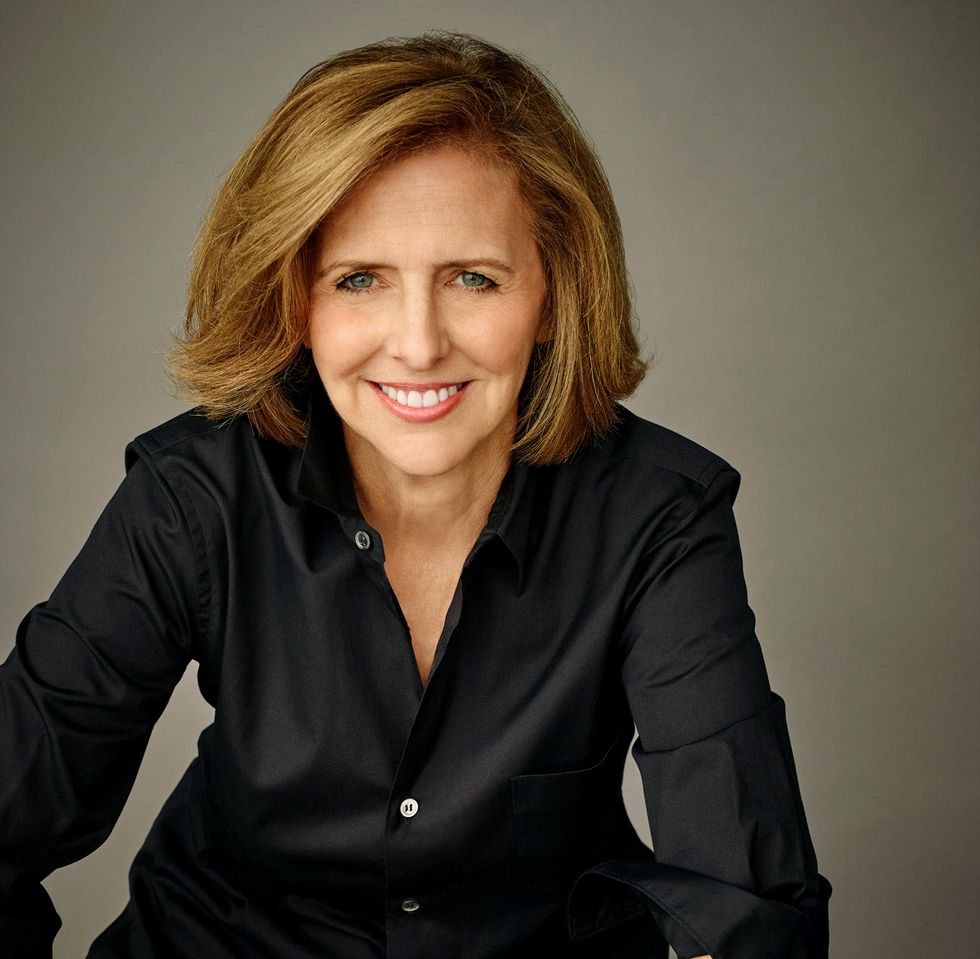
Who among us didn’t cheer just a little when Jennifer Lawrence wrote about being paid significantly less than her male co-stars—and yes, we’re talking about the difference between millions and millions, here, but still? But no one can really tell it like it is when it comes to being a successful woman in Hollywood like Nancy Meyers, the writer and director behind some of our all time cult favorites (Parent Trap anyone?), as well as last year’s The Intern (out now on iTunes and DVD, guys! We recommend watching in your finest pair of sweatpants with plenty of Pinot).
Let’s just say that Meyers is a role model we can actually look up to: she’s written and directed all her own projects and continues to put women at the center of her movies, even though the Hollywood powers that be continue not to put a premium on them (and the rest of the world labels them as chick flicks). “There’s some kind of judgment attached to [‘chick flicks’], yet when it comes to action films or any other genre geared to men, there is never a judgment about that,” Meyers said. “Films with women at their center, or appealing perhaps more to women, aren’t less serious or less ambitious or less important than films that appeal to men.” Preach! Herein, the director tells us about her cure for writer’s block, how to build a great screenplay and why you shouldn’t write the next Trainwreck to break into show biz. Oh, and she also addresses the whole gender wage gap thing, too.

ON BREAKING INTO SHOW BIZ:
“I was a journalism major in college, so yes, I always saw myself doing some kind of writing. But my heart always led me to movies. I was smitten by film at a very young age. I moved to Los Angeles when I was 22 and I was extremely naïve about the business. Ridiculously naïve…. I literally didn’t know a single soul in show business when I arrived. My first job was as a production assistant on a game show. I started taking classes at night where filmmakers would visit and talk to us about their experiences. I remember feeling my head spinning with excitement listening to them. I left my job and luckily got a job working for a producer reading screenplays and working with writers. It was wonderful. I learned an enormous amount. Then, I finally got the courage to say I wanted to be a screenwriter and tried my hand at screenwriting when I was about 26. At 28, I co-wrote Private Benjamin and I’ve been writing movies ever since.”
ON HER WRITING AND DIRECTING PROCESS (AND HOW PINTEREST COMES INTO PLAY):
“My writing process is a little different now than it was back when I co-wrote Private Benjamin in 1979. I would say it’s evolved over time but the core of it has actually remained very much the same. I ask the same questions of myself. What is it I want to say? What characters tell that story? And comedy is very central to my writing so I always look for what is comedic. I’m generally drawn to a premise that has something funny about it, but then once I get inside of the story and begin to dig, I find the truth of the characters and their situations and then that begins to drive the narrative.
Directing converges with writing because it’s the next step. As I direct, I then have to guide the actors, the production designer, the director of photography, the costume designer, etc. to help me tell the story I’ve written. I share all of my research with them so that they are up to speed on how I arrived at the finished screenplay. On The Intern, I made extensive Pinterest boards for each character and main location and I think that was incredibly helpful in creating the look and feel of the film.”
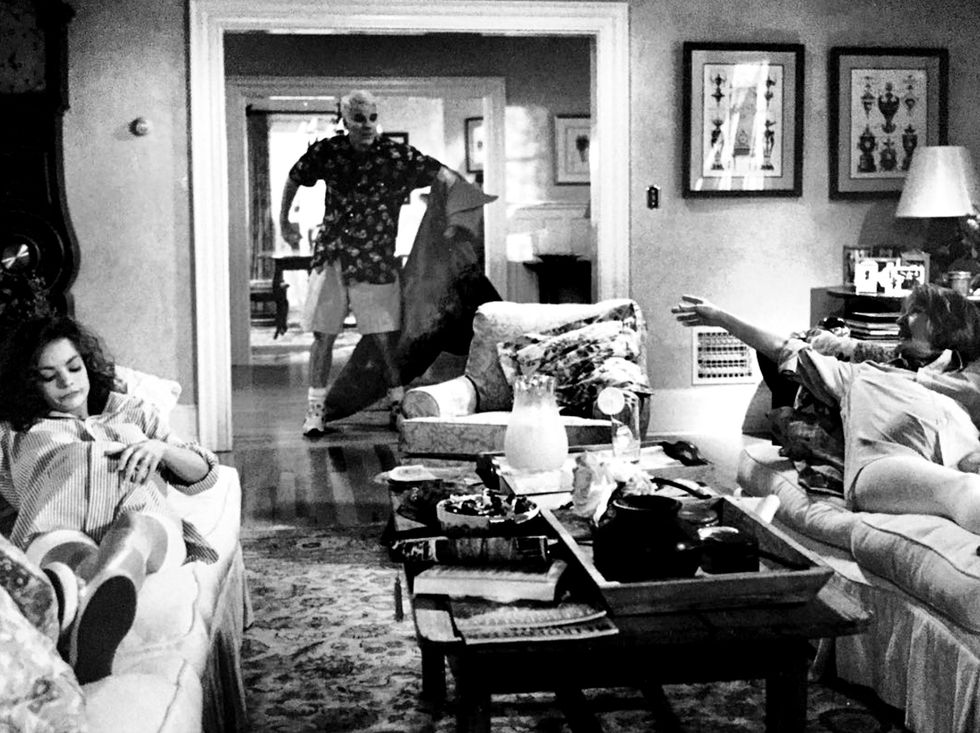
ON WRITING A SCREENPLAY:
“I outline for months and months before I begin. I make extensive notes, write chunks of dialogue, I do a ton of research, do character studies, come up with full back stories for all of the leads, figure out their quirks, their dreams, their fears… And once I’ve done all of that, I make an outline (which can be really long—70 or 80 pages) and then I feel ready to write. But I also know writers who don’t do that and just begin and see where the movie takes them. And their movies work… so…”
ON HER DIRECTING STYLE:
“During prep my goal is to fill everyone in on how I arrived at this movie we are about to make. I share visual images (on Pinterest), I talk about the characters in great depth, I describe the best I can how I want the film to look and feel, and then I encourage them to bring me their ideas because they will surely think of things I haven’t and their expertise is incredibly appreciated.
My directing style is similar. I want to help the actors get to the moments we need by guiding them there, but ultimately, they have to take ownership of their characters. There’s always a wonderful moment in making a movie when the actors and I get really in sync and they inhabit their characters in the most beautiful way.”
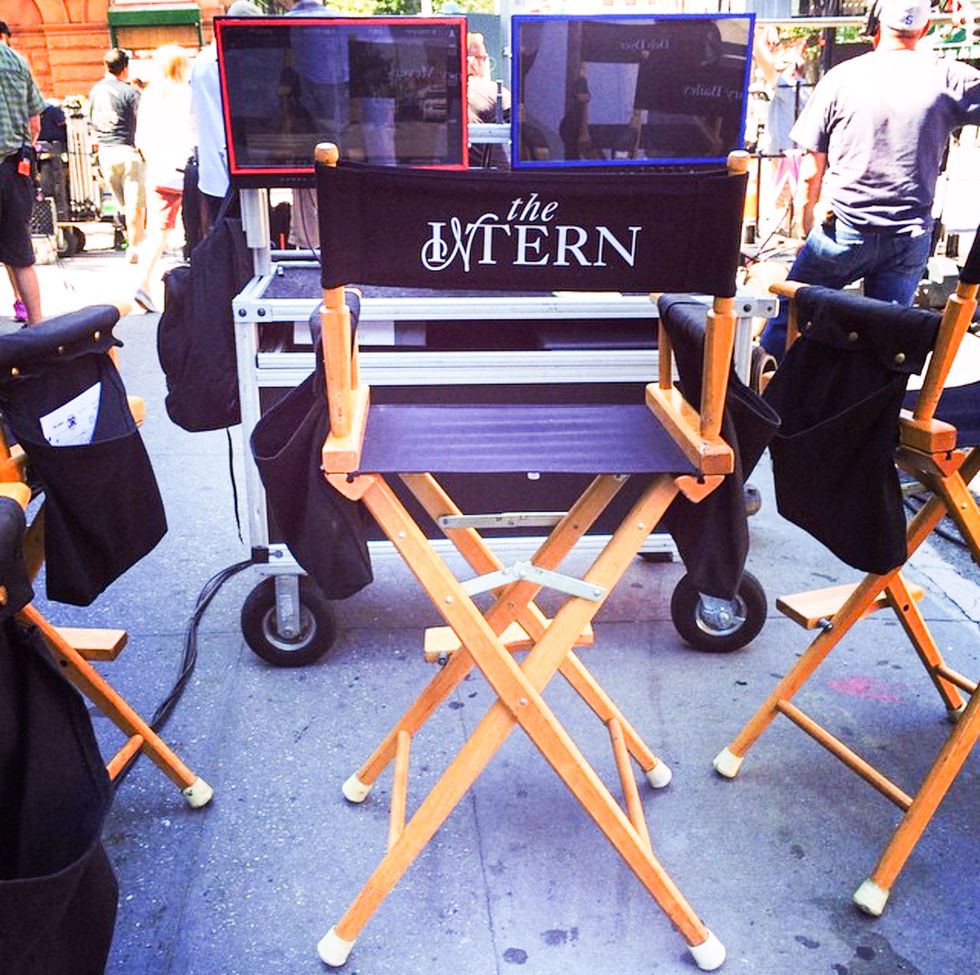
ON THE CONCEPTION OF THE INTERN:
“The idea started with the notion of a retired man who was restless with retirement and goes back to work as an intern. Honestly, I found it to be a funny idea… From there, I had to figure out who he was and, of course, where he would become an intern. A startup seemed like the right idea and a new kind of ‘office’ that would be foreign to him and most of the audience and I could see it being a place I could have fun writing… that led to who would run the start up and what her/his life would be. A woman seemed like a good fit for me and for the story. I knew the film was never going to be a romance, so I started falling in love with the idea of a young woman’s friendship with an older man… and then of course, I had to figure out her life and how she got there and who else worked there and so on… it’s a long process figuring out a movie; longer than you’d imagine.
It was an important story for me to tell for many reasons. I wanted to talk about aging and work and how difficult it must be for someone who has worked for 40+ years and to have that taken away from them, especially someone like Ben, the character De Niro played, who was still very vital. How do you turn that part of yourself off? And when I was imagining Ben at a startup surrounded by Millennials, I couldn’t help but think about what has happened to men over my lifetime and found that to be a very rich area to write about… and that included the differences between Ben and Jules’s (Anne Hathaway’s) husband, who is a stay-at-home dad. The movie gave me an opportunity to say a lot about our lives today and the enormous differences in generations. And also, hopefully, it has something to say about not judging people because they’re older, or because they’re a stay-at-home dad or a woman running her own company. Our tag line is, “Experience never gets old.” I didn’t write that line, but I liked it a lot.”
ON HOW THE INTERN RELATES TO HER OWN EXPERIENCES:
“Does The Intern relate to my own experience? Yes, there’s a moment in the film when Annie’s character Jules, is talking about her startup being judged as a ‘chick site.’ As you can imagine, many have called my films ‘chick flicks’ and usually it’s not said as a compliment. There’s some kind of judgment attached to that, yet when it comes to action films or any other genre geared to men, there is never a judgment about that. Films with women at their center, or appealing perhaps more to women, aren’t less serious or less ambitious or less important than films that appeal to men. So I could give that to her character and understood why that bothered her. But that’s just one way in which I relate. I’m closer to Bob’s age than Annie’s and definitely not retired, but I can feel that coming and I do wonder what that will be like—so I got to explore my own fears, I suppose. And I have two daughters, one in her twenties, and one in her thirties and I wanted to write about their world and having been a working mom I can absolutely relate to that journey as well.”
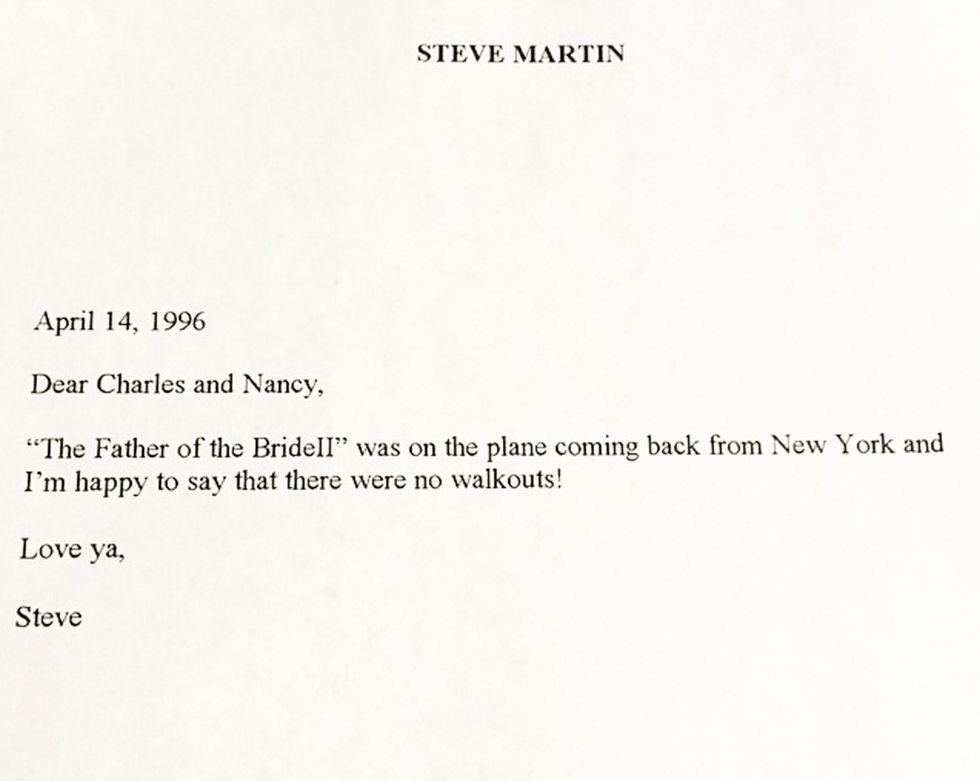
ON HER FAVORITE ACTORS TO WORK WITH:
“I love Diane Keaton: she’s authentic and original and so incredibly funny. We have a great rapport on and off movie sets. I love [Jack] Nicholson. He’s a master and, well, the guy just kills me. Making Something’s Gotta Give was incredibly memorable for me.
I loved working with Bob and Annie on The Intern. He becomes the character in a way I’ve rarely experienced… it seems like he’s unable to make a false move. And Annie is so enormously talented and courageous.
I loved working with Goldie Hawn in my first film, Private Benjamin. She’s magic. I adore Steve Martin. He’s so vulnerable and, obviously, next level funny. He’s brilliant and the nicest guy in the world.
I loved working with Cameron and Kate and Jack and Jude on The Holiday. They were all really fantastic. I remember always feeling so lucky to be working with them and each one of them brought so much to that film. I’m forever in their debt. And 11-year-old Lindsay Lohan was pretty wonderful in The Parent Trap. I can’t imagine that film without her.
Meryl Streep is a wonder. What’s left to say about Meryl Streep? She can do it all and gives you 1000% on every line. Making It’s Complicated with her was amazing for me.
And I loved working with Helen Hunt on What Women Want. I felt at times we were related in some way; she was so easy to work with because she understood things instinctively and deeply.
I’ve loved all the actors I’ve been able to work with. And whom would I want to work with? Ryan Gosling. He reminds me of Cary Grant.”
ON BEING A FEMALE DIRECTOR AND THE HOLLYWOOD GENDER GAP:
“I’m not sure if I’ve had battles different than male directors. I think directing is a tough job for all of us: There’s a lot of money at stake; lot of pressure 24/7. That doesn’t mean there aren’t huge gender problems in Hollywood. There are. I know so many talented women who don’t get the opportunities men have been afforded and films about women aren’t green lit often enough, that’s for sure. It’s very hard to get movies made with a central female character, and, when they are made, it’s often men who get to make them. It’s a problem Hollywood is beginning to face. Let’s see how they begin to tackle it. By the way, TV gets it. There are so many shows with women at the center. Why the film business is immune to this audience, I just don’t know…”
ON WHY SHE WRITES FEMALE-CENTRIC MOVIES:
“I guess the simple answer is because I’m a woman and I want and need to tell stories that reflect not only my experiences but those of other women. Women’s stories and our point of view and our experiences are vital stories to tell for men, women and kids.
I do feel a responsibility in my storytelling. Absolutely. I don’t really feel like I’m educating the audience. I think I’m telling stories and writing characters the audience can relate to. I think that’s why they seem to be working. I want to make comedies about real life: marriage, divorce, work, family, aging, heartbreak, falling in love…”
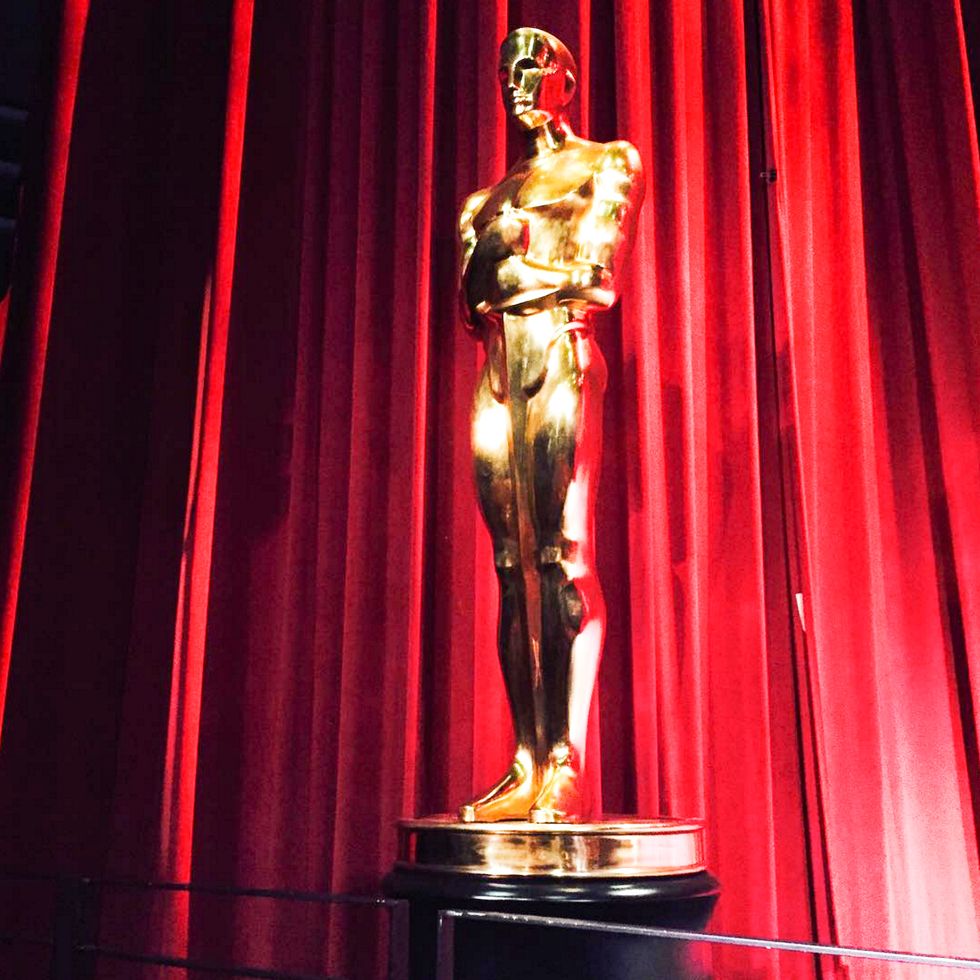
ON THE HOLLYWOOD WAGE GAP:
“As they say, ‘The struggle is real.’ I just read the Forbes list of the most overpaid actors. It would be hard to find a list like that for women doing any job in Hollywood.”
ON HER BEST ADVICE FOR GETTING INTO SHOW BUSINESS:
“For me, writing was my way in. My screenplays were never for sale without me as a producer or director. If you aren’t a writer, then I think having something to show is important: a student film… something. You need to be able to show something and say this is what I can do. And there are so many opportunities now. We all have a phone, right? Just go do it: you need to make it happen for yourself. No one is going to invite you into show business. And you’ve got to be strong and believe in yourself. It sounds cliché but it’s true. You’ve got to believe you can do this and you’re meant to do this. Write the movie that only you can write. Don’t write the next Trainwreck. It’s been done. Write something that's true to you.”
ON WRITER’S BLOCK:
“When I’m stuck, I walk. It helps me get unstuck.”
Friends! You can watch The Intern right now! Because it's out on Blu-ray™, DVD and Digital HD. Get on it already.
Photography courtesy Nancy Meyers.